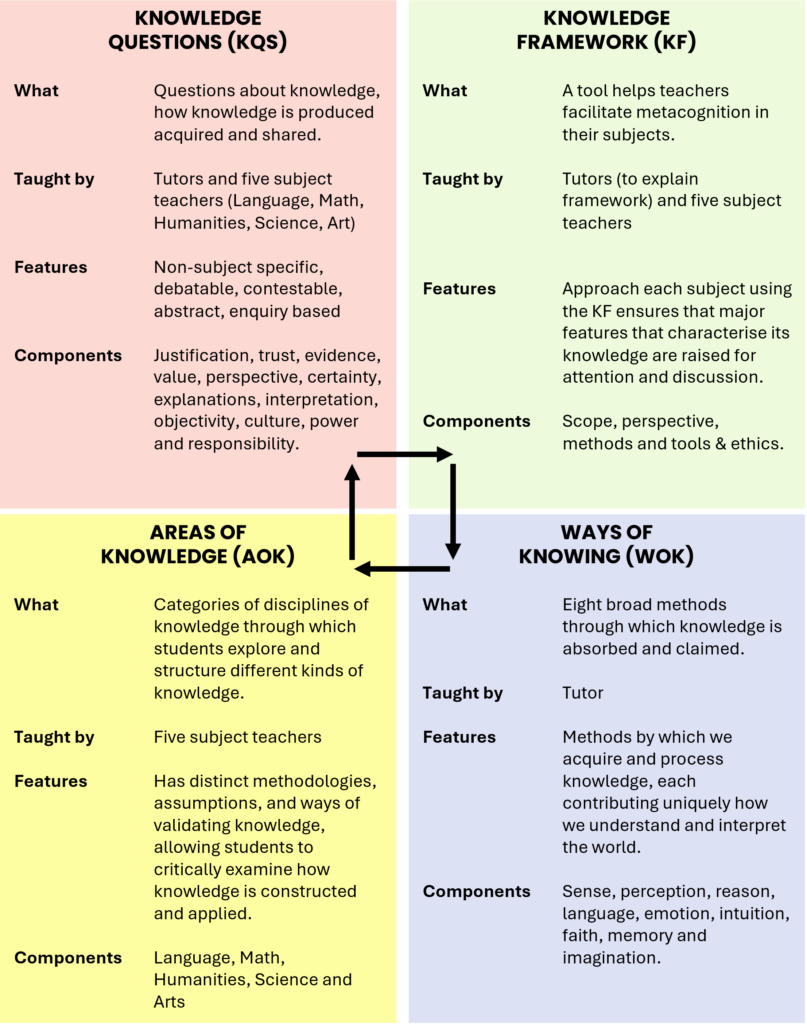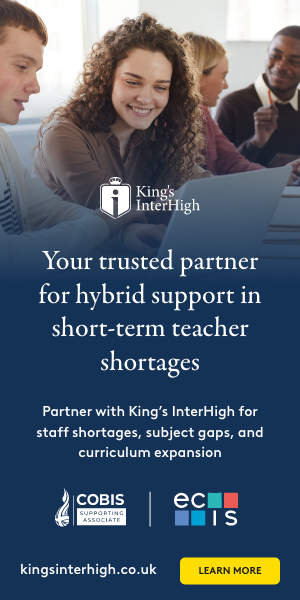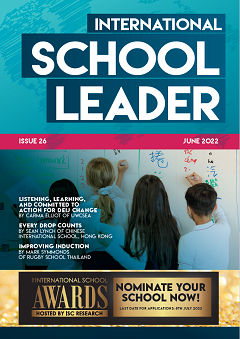As a social scientist, I frequently refer my students to the daily count of armed conflicts published by the Geneva Academy of International Humanitarian Law and Human Rights, encouraging them to reflect on why these conflicts started in the first place and to think of potential solutions. Their responses occasionally confused me, sometimes filled me with joy, and at other times saddened me due to their narrow views and unconscious prejudices. Upon reflection, I cherish the time spent with my students, but I acknowledge that my own biases and tendencies sometimes led to satisfaction when their views aligned with mine, or to frustration when they didn’t.
I often credit the Theory of Knowledge (TOK) course of the International Baccalaureate (IB), which I have been a part of since 2005, for helping me observe my emotional responses to key stimuli that I encounter. The awareness of my short- and medium-term reactions to stimuli, which, in many ways, determine my ability to stay positive and contribute constructively to my professional and personal life.
I often wondered why the TOK course wasn’t part of the curriculum for middle school students, who are constantly exposed to misinformation and social media that shape their understanding of the world and themselves. There were significant obstacles to implementing such a course, including prioritisation of knowledge-based subjects over metacognition, curriculum adaptation challenges, timetabling, teacher training, resource limitations, fair assessment development, language barriers, and cognitive maturity. Despite these challenges, as an IB curriculum developer and leader in teaching and learning, I quietly fostered a desire to create a metacognitive program for students of this age.
An opportunity for innovation
A serendipitous call from Myanmar offered a unique chance to implement such a program. Mohon Iyer, who oversees 13 schools there, including two IB schools, sought to cultivate independent thinking among middle schoolers amid the country’s complex socio-political climate.
Using the IB’s TOK course for Diploma students, I attempted to create a backward map to the middle school to see how the key parts of knowledge development could be taught to the grade-specific level (between grade 6 and 10). A 50-hour course per year ensures a student gets about 250 hours of systemic exploration to metacognition before they begin high school.
A new course for middle school students
The aims and goals for the course were as follows:
- Engaging in interesting conversations that cross subjects and help students reflect on the knowledge they have acquired in and outside the classroom.
- Examining the evidence for claims and considering the credibility of claims that we are exposed to through different media.
- Exploring different methods and tools of inquiry.
I used four key components from different iterations of the IB TOK curriculum to design the course:

Source: Tanusankar Chakraborty
Delivering metacognition
The metacognition course involves two key groups: the homeroom teacher and five subject teachers (Language, Maths, Science, Humanities, and Arts). Tutors, with 1-2 hours per week for pastoral time, use this to introduce WOK, KQs, and KF, guiding students in understanding how knowledge is constructed and justified. Middle school tutors dedicate 15 hours annually to WOK, increasing complexity with relevant examples or distributing WOKs across year groups, shifting focus to AOKs in the last two years.
Subject teachers lead students through AOKs, exploring experiential knowledge, skills, and knowledge claims. Each subject teacher provides 2-3 hours of instruction per term, resulting in a total of 35 hours annually.

Source: Tanusankar Chakraborty
Assessing metacognition
The IB TOK course provides two assessment types: an exhibition and a written essay. For middle schoolers, I recommend maintaining the Exhibition as a Knowledge Artifact for grades 6 to 8, with increased complexity and depth in grades 9 and 10. The Exhibition demonstrates students’ understanding of metacognitive concepts and how the WOK/AOK frameworks manifest in real-world contexts in 350 words. These exhibitions can be showcased in student-led parent meetings or standalone events. For grades 9 and 10, a metacognitive essay can be introduced, with students writing a 700-word essay in Grade 9 linking key knowledge topics, increasing the word count to 1000 in Grade 10, using specific rubrics and success criteria for evaluation.
Results of the course
The outcomes of the metacognition course have been promising but not without challenges. Brainworks Integrated, the group of schools involved, now allocates dedicated time for tutors to discuss WOK with students and has incorporated a section in the annual report card. Online training sessions for tutors by seasoned TOK teachers are scheduled to support curriculum design. Initial implementation has been challenging, but the effort is worthwhile, as students are expected to reap significant benefits by the end of the process. Feedback from the parents has been encouraging, and the course continues to evolve.
Alec Peterson, the first director general of the IB, developed the TOK course for high school students during the turbulent “swinging sixties,” a time marked by antiwar protests and countercultural movements. However, with today’s challenges of misinformation, information overload, distractions, and well-being issues, developing metacognition within middle schoolers has never been more important.
Practical tips for school leaders
- Culture of Reflection: Establishing a curriculum for teacher metacognition is just the start. Creating a reflective culture where thinking is openly shared is key for successful implementation.
- Gradual Implementation: Embed metacognition into the larger strategic plan. Incremental progress is often more authentic than a large-scale rollout.
- Knowledge Questions: Integrate KQs into every classroom using the Knowledge Framework (KF) to drive critical thinking.
- Metacognition Curriculum: IB TOK and subject guides offer insights on integrating metacognition across subjects, with backward mapping to create engagement opportunities.
- Use of AI: Carefully integrate AI tools to enhance the development of a metacognitive curriculum.
- Reporting: Include a section on metacognition in report cards to highlight its importance as a key learning element.

Tanusankar Chakraborty is the Assistant Head Teacher at the International School of Penang (Uplands). He also works as an IB Workshop Leader and chair of the IB/CIS/WASC evaluation visits. You can connect with him on LinkedIn or via email.



